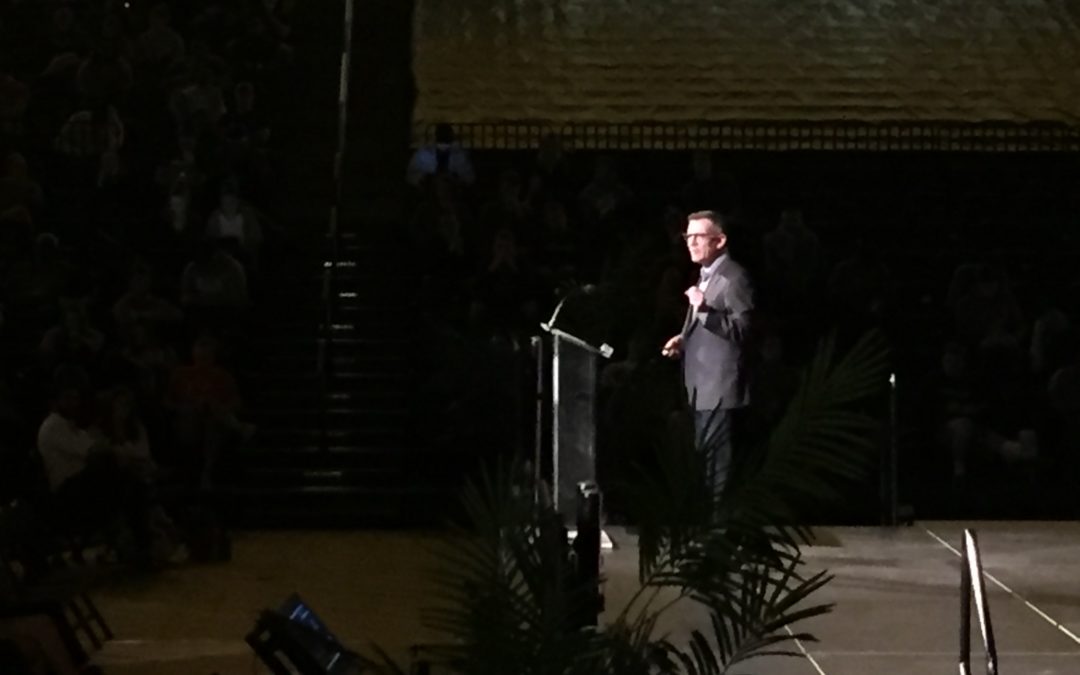Tuesday’s Gathering chapel featured a message and advice from Andy Crouch on how students can put themselves in situations in which they can thrive.
“Turn to your neighbor and talk about a time when you were fully alive,” he said, “a time when you were flourishing. I want to describe to you what all experiences of flourishing have in common.”
He spoke of two qualities: authority and vulnerability. He described authority as “the capacity for meaningful action,” and flourishing as “exposure to meaningful risk.”
He made a graph to show the relationship to the two components. There were four quadrants divided by an “X” and “Y” axis. The horizontal line was labeled “vulnerability,” and the vertical, “authority.”
“When both are high,” he explained, indicating the upper quadrant on the right, “you have great flourishing.”
More than that, Crouch said he wanted to focus on the other three corners. In the opposite corner of flourishing, he labeled the quadrant “safety.” This corner was low in both authority and vulnerability. “You’re not being asked to do anything,” he said. “You’re not risking anything.
Every parent wants to have their child start off in this, in safety.”
Crouch went on to explain that the safe quadrant is where some people start, and most hope to grow out of. As people grow, he said, they become more exposed.
Crouch related this to his daughter who recently turned 18 years old. As she will soon be moving away from home, he said she will be exposed to more authority and risk.
“That’s the way a healthy life is supposed to go,” Crouch said.
The corner in which vulnerability was high, but authority was low, Crouch labeled “suffering.” In this corner, people are exposed to risk with no capacity for action. Crouch also tied this quadrant to addictions, which promise an escape via authority, but end up depleting their abusers of such.
For example, he explained how social media addictions follow this pattern.
“It lets us control how other people see us, but the more we use it, the more prone we are to anxiety and depression,” Crouch said.
In the final quadrant, he spoke of injustice. He described this as a social arrangement in which some people have authority without vulnerability at the expense of other people who are at risk with no capacity to change it.
When Crouch rhetorically asked what could rescue us from such desolate situations, he presented Jesus as the solution.
“[Jesus] came to earth with more authority than anyone else,” he said. “Because He’s present with us, human beings have a promise of flourishing.”

